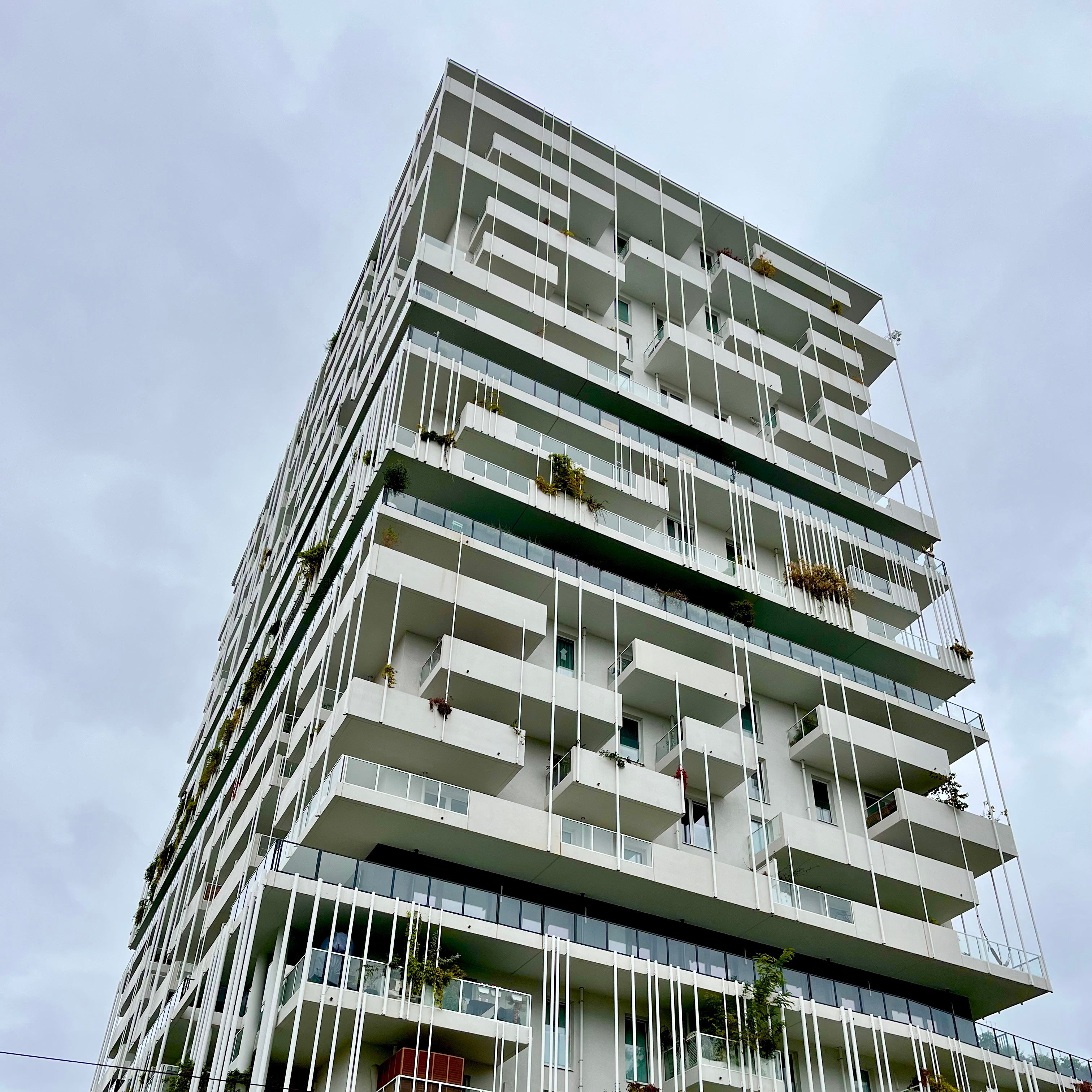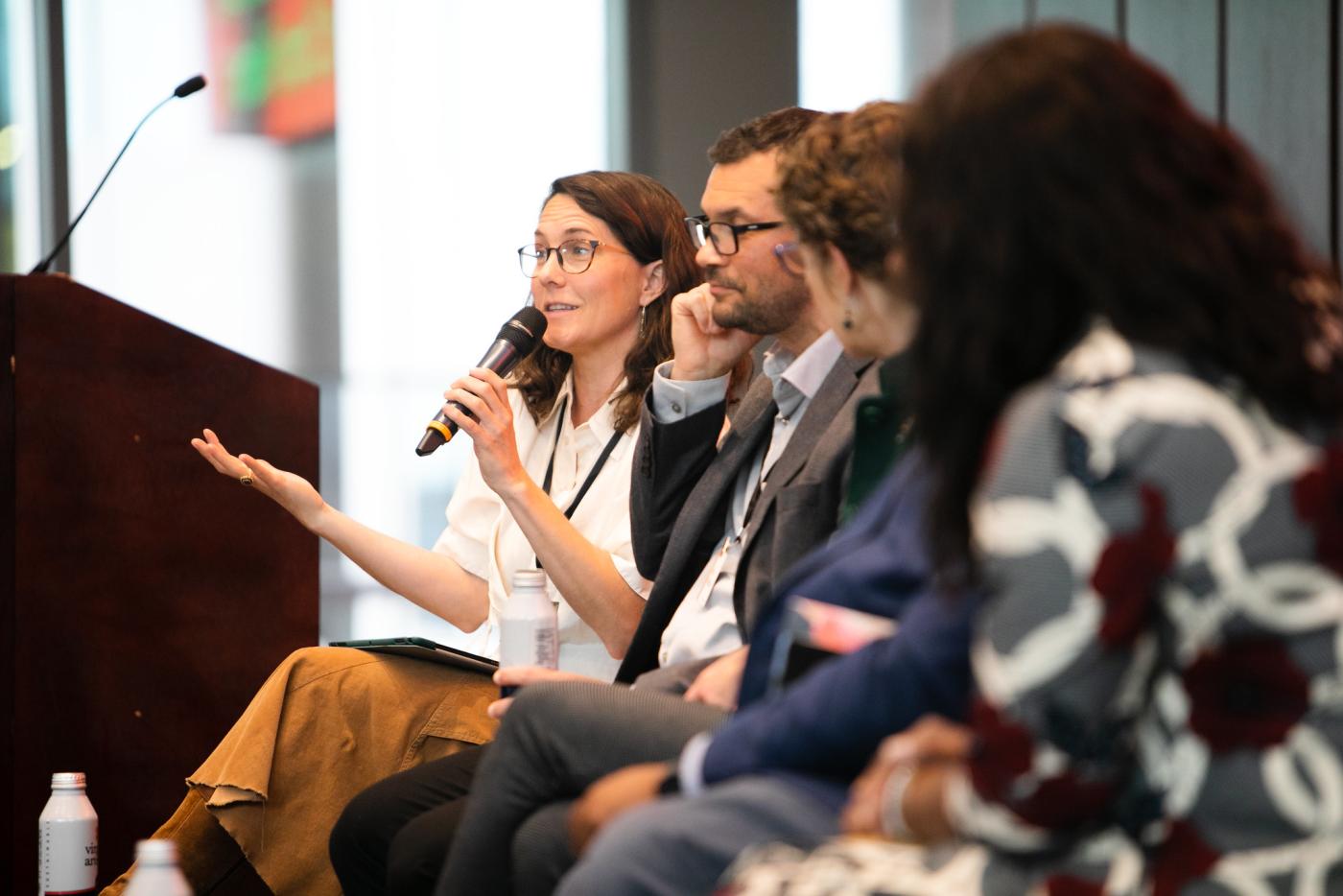
Barbara Brown Wilson Shares Climate Justice Stories on the ‘With Good Reason’ Podcast

In a recent episode of Virginia Humanities’ podcast program With Good Reason, Barbara Brown Wilson, an Associate Professor of Urban and Environmental Planning at the School of Architecture and co-founder of the Equity Center at the University of Virginia, shared insights into her work on climate justice. Host Sarah McConnell delved into topics ranging from the intertwining nature of urban and environmental planning to the mission of the Equity Center and its efforts to combat climate injustice across Virginia.
Urban + Environmental Planning—Why Both?
Brown Wilson highlighted the unique position of the UVA Department of Urban and Environmental Planning as one of the few departments combining these disciplines. She emphasized the necessity of this integration, stating that they are inherently connected and cannot be effectively addressed in isolation. “We are part of the environment, we are part of nature, and so are cities,” said Brown Wilson.
Addressing Inequity in Charlottesville
The Equity Center, founded by community members in the Charlottesville-Albemarle region with support from the university, aims to rectify historical inequities by empowering marginalized communities. In 2015, Charlottesville ranked in the bottom 3% for being conducive to wealth-building for low-income communities—a statistic that served as a catalyst for the Center's creation. Brown Wilson stressed the importance of providing a platform for collective decision-making to foster a more equitable society.
Climate Change is an Equity Issue
Climate justice is a key focus area of the Equity Center’s work. Brown Wilson underscored the disproportionate impact of extreme climate events on low-income communities, like heat islands in Charlottesville. She attributed this disparity to historical urban planning practices, such as redlining, which have relegated low-income housing to low-lying areas lacking essential resources like trees and shade.
Mapping Climate Equity in Coastal Virginia
The conversation shifted to the Eastern Shore, where the Equity Center works with UVA’s Environmental Institute and other key partners to collaborate with local communities grappling with flooding and saltwater intrusion. Through initiatives like the Climate Equity Atlas, they aim to facilitate informed decision-making at both local and state levels, incorporating the perspectives of diverse stakeholders. “Community leaders are helping us understand what people on the Eastern Shore care about so that we can give them a decision support tool where they can talk across difference.” said Brown Wilson.
Empowering Community-Driven Change
Brown Wilson shared heartening examples of the Equity Center’s community-driven work and partnerships, such as the resident-led redevelopment of Charlottesville's Friendship Court neighborhood (now Kindlewood) and the creation of C'Ville Tulips, begun by the Equity Center’s faculty co-founder Bonnie Gordon to connect refugee families with each other. These initiatives empower residents to shape their environments and forge connections from within their own communities.
A Sea Change: Shifting Attitudes on Climate Justice
Reflecting on the evolution of attitudes towards climate justice, Brown Wilson noted a growing awareness spurred by personal experiences of climate-related disruptions. She highlighted the increasing interest among students, exemplified by the popularity of her climate justice class. “When I was in school there was no class on climate justice,” said Brown Wilson. Today's students "care a lot," she said.
McConnell and Brown Wilson’s dialogue shed light on pressing environmental and social issues but also inspired hope through community-driven solutions. Their conversation is the concluding segment of “Mapping Climate History,” which aired April 19, 2024. Catch the full episode and listen to scholars from across the Commonwealth address topics like the restorative qualities of forest fires, coral reefs as a map to the past, and groundwater overuse.


